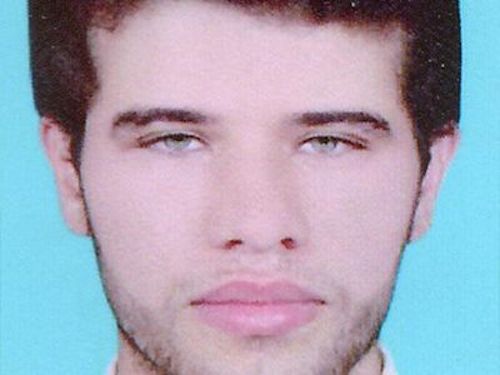Iranian Poet and Activist Executed
 Last month, Hassan Rouhani, the new President of Iran, made a whirlwind visit to Ahvaz, capital of the southwestern province of Khuzestan. According to official media, Rouhani spent much of his time there dealing with “a number of sensitive files” left undecided by the outgoing president, Mahmoud Ahmadinejad.
Last month, Hassan Rouhani, the new President of Iran, made a whirlwind visit to Ahvaz, capital of the southwestern province of Khuzestan. According to official media, Rouhani spent much of his time there dealing with “a number of sensitive files” left undecided by the outgoing president, Mahmoud Ahmadinejad.
One such file concerns 14 human rights activists who had been in prison for up to two years. When Rouhani took over as president he had them moved from the Karoun Prison in Ahvaz to an unknown destination. There, last July, an Islamic Revolutionary Tribunal with a single judge, Ayatollah Muhammad-Baqer Mussavi, sentenced the 14 to death on charges of “waging war on God” and “spreading corruption on earth” and “questioning the principle of velayat-e faqih” (the guardianship of the jurist). Before he left Ahvaz, Rouhani gave his green light for the executions. The first two executions were carried out last Monday when Hashem Shaabani and Hadi Rashedi were hanged in an unidentified prison.
Both men were well known in human rights circles across Iran and had a long record of advocating greater cultural freedoms for Iran’s ethnic Arab-speaking minority, believed to number almost two million.
Shaabani, aged 32, was especially known in cultural circles because of the poetry he published both in Persian and Arabic. He was also a founder of the Dialogue Institute that aimed at promoting a better understanding of Arabic literature and culture among Iranians. The institute offered Arabic language classes for a nominal fee and helped with the translation of modern Persian poems into Arabic and vice-versa.
Hashem Shaabani was arrested in February 2011, an was tortured in prisoın. He is originally from Ahwaz City and a resident of Khalafabad. He is married with one child and before his arrest he took care of his elderly parents.
In a letter smuggled out of prison Shabani wrote that he had written blogs and essays critical of the treatment of minorities in Iran, including “hideous crimes against Ahwazis perpetrated by the Iranian authorities, particularly arbitrary and unjust executions. Through this reporting, I was defending the legitimate right that every nation in this world should have which is the right to live freely with full civil rights. With all these miseries and tragedies, I have never used a weapon to fight these atrocious crimes except the pen.”
First published at Asharq Al-Awsat
See also Mana Neyestani: Cartoons for Iran at Sense of Time

